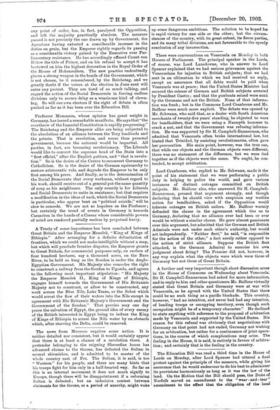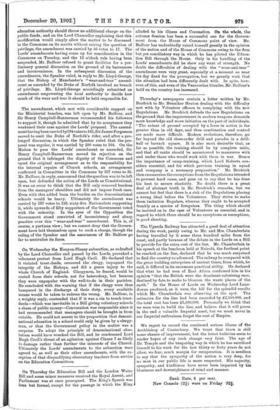The Education Bill was read a third time in the
House of Lords on Monday, after Lord Spencer had uttered a. final protest against the principle of the measure, while giving his assurance that he would endeavour to do his best to administer its provisions harmoniously as long as it was the law of the land. On the Motion that the Bill should pass, the Duke of Norfolk moved an amendment to the " wear - and - tear " amendment to the effect that the obligation of the local
education authority should throw no additional charge on the public funds, and on the Lord Chancellor explaining that this modification would simply allow the matter to be discussed in the Commons on its merits without raising the question of privilege, the amendment was carried by 56 votes to 17. The Lords' amendments having come up for consideration in the Commons on Tuesday, and the 12 o'clock rule having been suspended, Mr. Balfour refused to grant facilities for a pre- liminary general discussion on the ground of its barrenness and inconvenience. In the subsequent discussion of the amendments, the Speaker ruled, in reply to Mr. Lloyd-George, that the Bishop of Manchester's " wear-and-tear " amend- ment as amended by the Duke of Norfolk involved no breach of privilege. Mr. Lloyd-George accordingly submitted an amendment empowering the local authority to decide how much of the wear and tear it should be held responsible for.











































 Previous page
Previous page